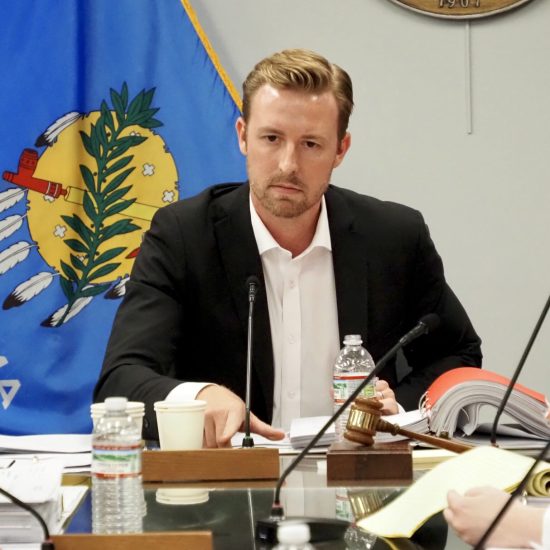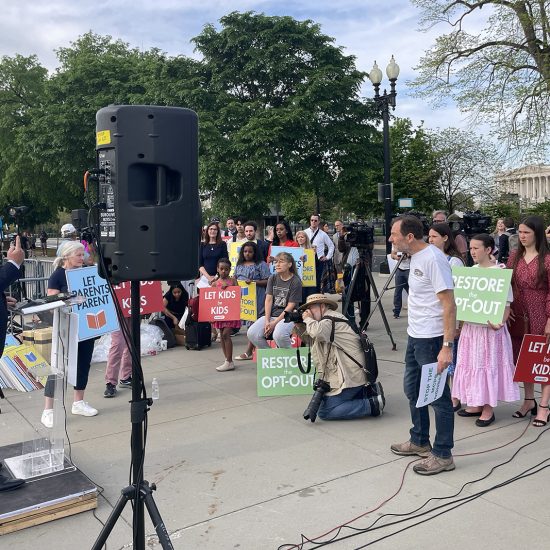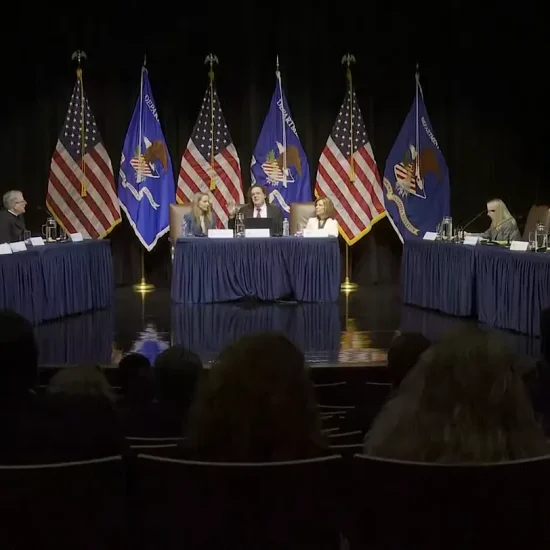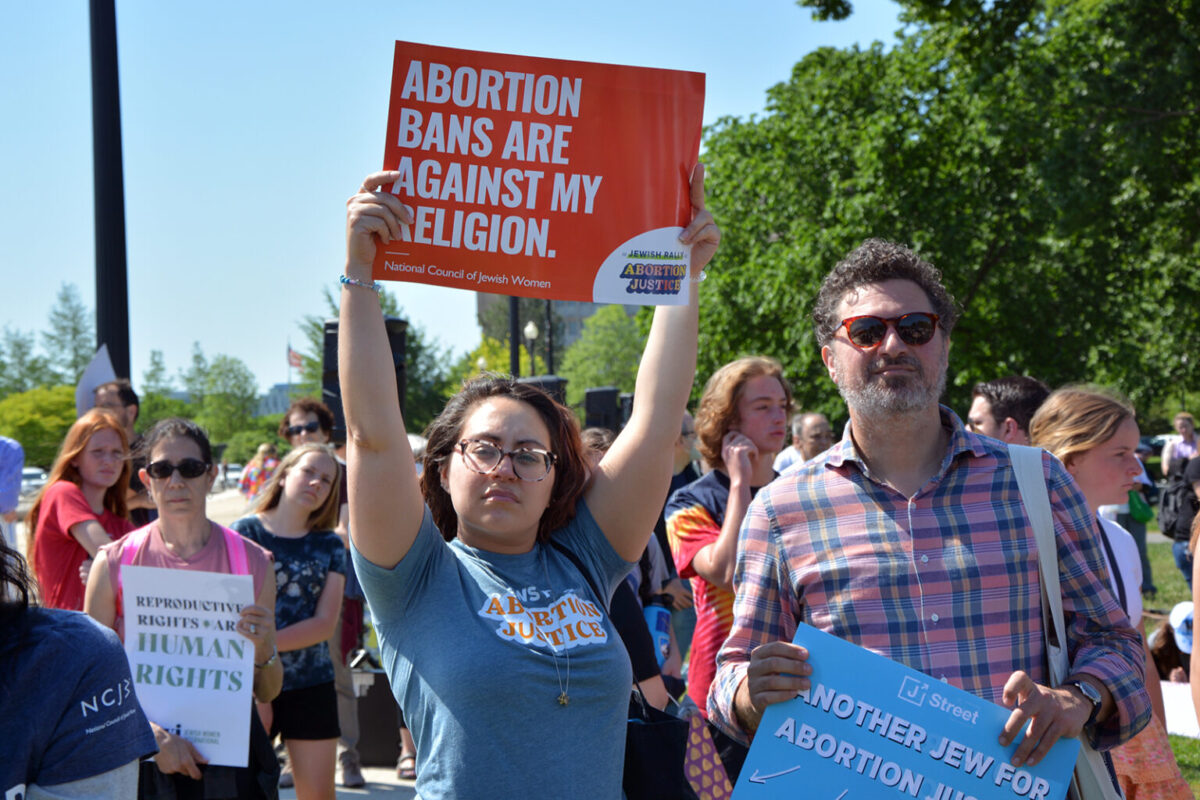
(RNS) — The Indiana Court of Appeals has upheld a lower court’s injunction on the state’s near-total abortion ban, giving another win to those who say the ban ignores their religious beliefs about when human life begins.
In her majority opinion, issued on Thursday (April 4), Judge Leanna K. Weissmann argued that the injunction was necessary to protect the religious freedom of those seeking an abortion, and allowed the case to proceed as a class-action lawsuit.
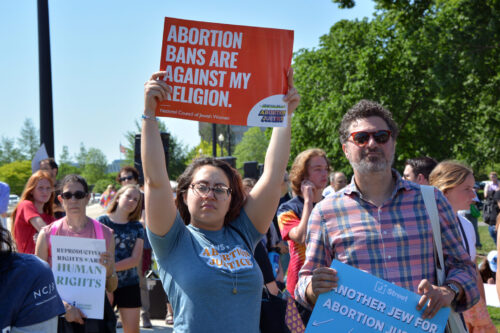
People attend the Jewish Rally for Abortion Justice on the National Mall, May 17, 2022, in Washington. (RNS photo/Jack Jenkins)
“Without a preliminary injunction, Plaintiffs will suffer the loss of their right to exercise their sincere religious beliefs by obtaining an abortion when directed by their religion and prohibited by the Abortion Law,” Weissmann wrote.
In utilizing Indiana’s Religious Freedom Restoration Act to protect the right to an abortion, the plaintiffs in the case are seeking to reverse the political history of the law. Its passage in 2015, which was backed by conservative religious leaders, then spurred outcry from more liberal-leaning religious groups.
The case was filed by the American Civil Liberties Union of Indiana on behalf of five anonymous residents and Hoosier Jews for Choice opposing a state law passed in the wake of the U.S. Supreme Court’s Dobbs decision in 2022. ACLU lawyers argued that Indiana’s ban violates the state’s RFRA, a measure focused on religious liberty that was signed into law in 2015 by then-Gov. Mike Pence.
In a concurring opinion, Judge L. Mark Bailey suggested the abortion ban effectively privileged one form of faith over others by siding with a specific definition of when life begins.
“In accordance with abundant religious liberty and the recognition of a pluralistic society, our Constitution further provides: ‘No preference shall be given, by law, to any creed, religious society, or mode of worship,’” Bailey wrote. “Yet in this post-Dobbs world, our Legislature has done just that — preferred one creed over another.”
The lawsuit noted that, under Jewish law, “a fetus attains the status of a living person only at birth,” and that abortions “may occur, and should occur as a religious matter, under circumstances not allowed” under the state’s abortion ban. It went on to note that various other religious groups — Muslims, Unitarian Universalists, and Episcopalians, among others — also hold religious beliefs about abortion impacted by the abortion ban.
The case is one of several religious liberty-related legal challenges to state-level abortion bans filed across the country after the Dobbs v. Jackson Women’s Health Organization decision overturned the decades-long national right to abortion established by Roe v. Wade. From Kentucky to Florida to Missouri, leaders from an array of religious backgrounds have argued that their faiths allow or even encourage access to abortion, particularly Jewish leaders.
U.S. Supreme Court Justice Sonia Sotomayor cited the spectrum of religious thought regarding abortion during oral arguments over Dobbs, saying, “The issue of when life begins has been hotly debated by philosophers since the beginning of time — it’s still debated in religions.”
Americans United for Separation of Church and State, which filed an amicus brief in the case, celebrated the court’s decision.
“The court rightly found that Indiana’s abortion ban cannot override religious freedom protections in Indiana law,” Americans United CEO Rachel Laser said in a statement. “As we told the court, abortion bans undermine religious freedom by imposing one religious viewpoint on all of us. Abortion bans are a direct attack on the separation of church and state.”

